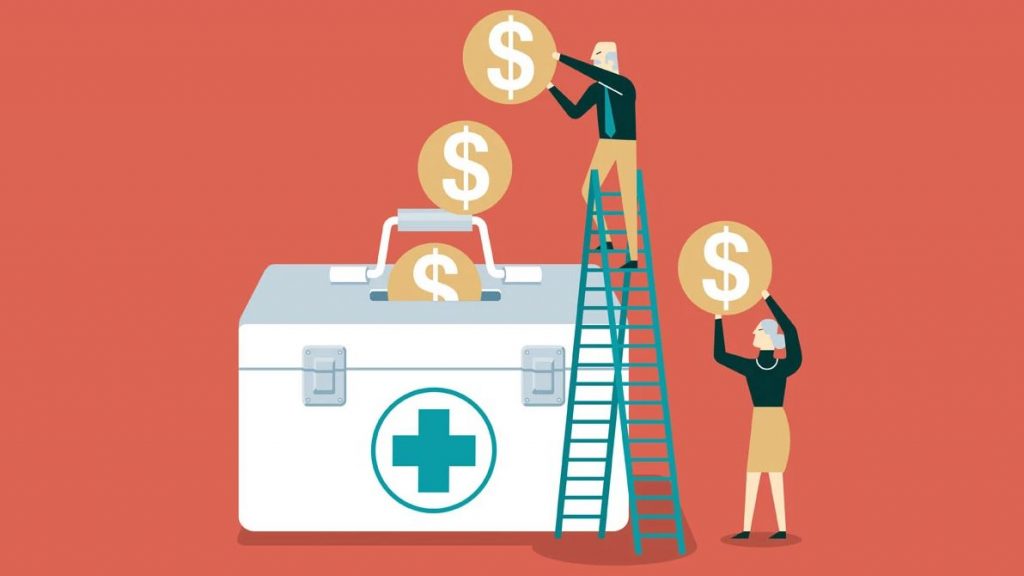
Healthcare is expensive. In The Lifetime Medical Spending of Retirees report, economists noted that households incur an average cost of $122,000 in medical costs between the age of 70 and death. Most of this money is paid out of pocket, with the exception of low-income folks covered by Medicaid.
One way to plan for expensive medical care is through Health Savings Accounts (HSAs), which have 3 key benefits:
- Lower monthly premiums
- Incredible tax advantages
- You own it and the funds roll-over
The remainder of this post explores the various elements of these benefits.
What is a Health Savings Account (HSA)?
HSAs are tax-advantaged accounts that enable you to set aside pretax money to pay for qualified medical expenses that aren’t covered by insurance.
Who is eligible for an HSA?
Those enrolled in a high-deductible insurance plan (HDHP) as defined by the IRS are eligible for HSAs. Because not all high-deductible plans qualify for HSAs, it’s important to look for plans that are specifically designated “HSA eligible”. If unsure, contact your HR representative during open enrollment or visit healthcare.gov.
Although the high-deductible HSA plans mean more will be paid out of pocket before insurance kicks in, lower monthly premiums associated with HSAs make them attractive options for healthy individuals and families that rarely visit the doctor.
What are the HSA tax advantages?
What are the HSA tax advantages?
There are 3 tax advantages to HSAs.
- HSAs are either pre-tax (if through an employer) or tax deductible (if opened on your own)
- HSAs have no taxes on the account’s growth
- HSA withdrawals for eligible expenses are not taxed
Since HSAs don’t count toward your tax burden, you will be taxed as if you earned less money.
For example, if you earned $50,000 of gross income and you contributed $3,000 to your HSA, you will only be taxed as if you earned $47,000, thus, lowering your tax burden.
How much can you contribute to your HSA?
For the 2020 tax year:
- Individual maximum contribution: $3,550
- Family maximum contribution: $7,100
- Folks 55 and older: An additional $1,000 “catch-up” contribution
When to save for the HSA?
HSAs are essentially emergency funds solely for medical expenses and contributions can be made for a tax year all the way up until tax time of the following calendar year (typically April 15th).
For those of us who subscribe to the Dave Ramsey Baby Steps, Baby Step #3 is a good place to contribute to an HSA. Ensuring you have enough in your HSA to at least cover your annual deductible is a good goal.
Beyond this, if you’re healthy and not expecting any upcoming medical expenses (like a new child), don’t put too much extra money in your HSA to the detriment of the other Baby Steps.
Dave Ramsey’s 7 Baby Steps:
Baby Step #1: Save $1,000 Emergency Fund
Baby Step #2: Pay off all non-mortgage debt
Baby Step #3: Grow your $1,000 Emergency Fund to a 3-6 month Emergency Fund
Baby Step #4: Invest 15% of gross income into retirement accounts
Baby Step #5: College funds for children
Baby Step #6: Pay off home early
Baby Step #7: Build wealth & give!
What happens to the money in my HSA if I switch jobs or don’t use it by year’s end?
HSAs remain with the account holder, so if you get a new job or health plan, you still keep your HSA.
All HSA funds also roll over year-over-year so you have access to all money in the account.
Flexible Spending Accounts (FSAs) are the accounts with less flexibility. FSAs are owned by the employer and any unused funds at the end of the year do not roll-over.
HSA Investing
Investing HSA balances in mutual funds is a prudent choice. With consistent HSA contributions and mutual fund growth, the balance will grow substantially over the years.
Be sure to find an HSA custodian that allows investing and offers low-fee investment options.
The “HSA IRA”
At the age of 65, the HSA acts like a Traditional Individual Retirement Account (IRA). This “HSA IRA” enables the owner to withdraw money for any reason – simply pay taxes on it just like a traditional IRA. At the same time, you can still pay for qualified medical expenses TAX FREE!
Note: once enrolled in Medicare, you cannot contribute to your HSA since Medicare is not a high-deductible plan. However, you can still use HSA funds for qualified medical expenses.
Key Takeaway
If you’re eligible for a health plan with an HSA and you’re generally a healthy person – get an HSA!
Affiliate Disclosure: As an Amazon Associate, I earn from qualifying purchases.
Enter your email in the “Subscribe” box to receive the latest Financial Thriving blog post.